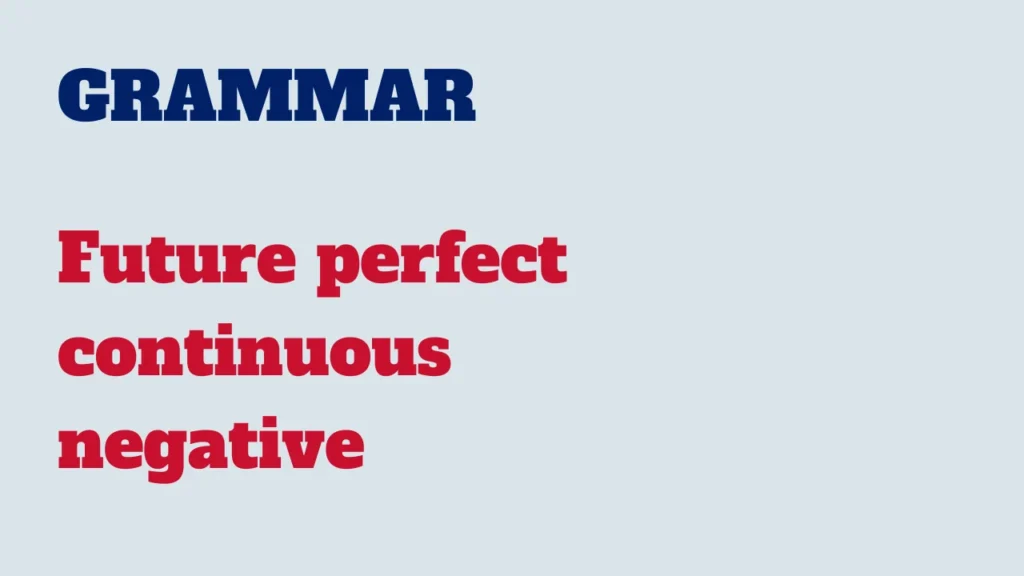In the future perfect continuous tense, negative sentences are formed the auxiliary verb “will not” (won’t), after the subject, then”have been”, then the present participle (base form + –ing) of the main verb, and any additional information or complements.

Here’s how to construct future perfect continuous negative sentences:
Structure:
Subject + will not (won’t) + have been + Present participle of the main verb (base form + –ing) + Complements or additional information
Examples:
I won’t have been studying for five hours by the time you arrive.
She will not have been working on the project at the end of the day.
We won’t have been waiting for the train at the station for an hour by then.
They will not have been playing soccer in the park at four o’clock.
He won’t have been living in the city for ten years by next month.
Table: Future perfect continuous – negative
| SUBJECT PRONOUN | FUTURE PERFECT CONTINUOUS AFFIRMATIVE | EXAMPLES |
|---|---|---|
| I | will not have been + present participle | I will not have been studying for an hour by then. |
| You | will not have been + present participle | You will not have been working on the project all day. |
| He/She/It | will not have been + present participle | She will not have been waiting for long by noon. |
| We | will not have been + present participle | We will not have been practicing the piano for months. |
| You (plural) | will not have been + present participle | You will not have been living in this city for a year by that time |
| They | will not have been + present participle | They will not have been renovating their house for weeks by Friday. |
Usage of future perfect continuous – negative:
Denying continuous duration leading to a future point:
Used to express that a continuous action will not have been ongoing until a specified future point.
Example:
I won’t have been exercising for an hour before the fitness class begins.
Negating prolonged actions or efforts:
Used to deny that actions or efforts will have been continuing for an extended period by a certain future moment.
Example:
She will not have been practicing the instrument for three years.
Stating the absence of anticipated ongoing activities:
Can be employed to express that expected ongoing activities will not have been taking place in the future.
Example:
At night, they will not have been gardening in the backyard for the whole day.
Understanding how to form and use future perfect continuous negative sentences allows you to express the absence of continuous duration leading up to a specific future moment. Practice constructing negative sentences in the future perfect continuous tense to enhance your language skills. Happy learning!



